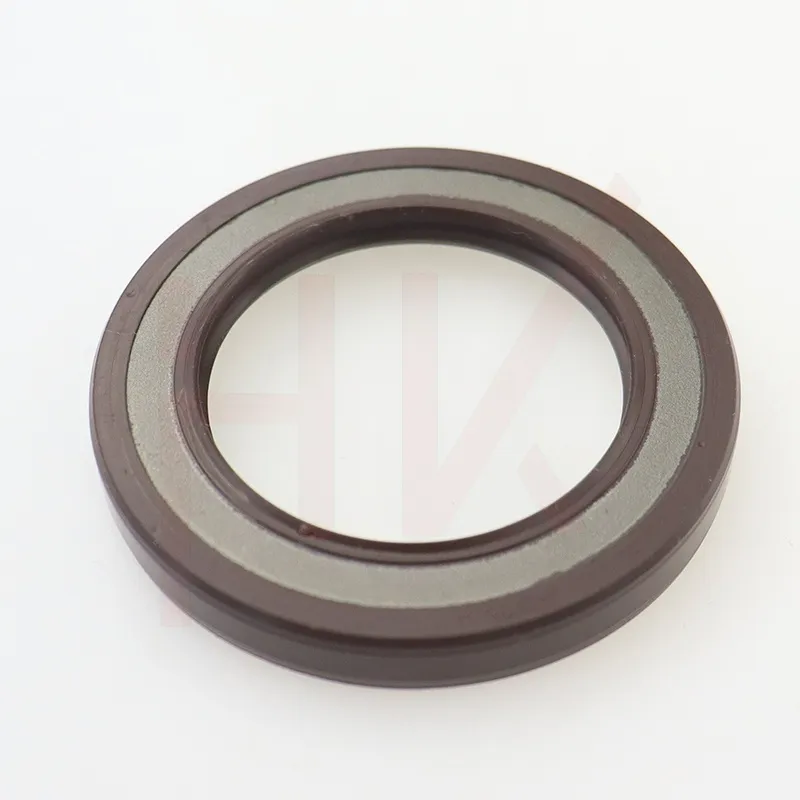Nov . 30, 2024 23:53 Back to list
oil seal for pump
Understanding Oil Seals for Pumps A Comprehensive Overview
Oil seals, also known as shaft seals or rotary seals, play a crucial role in the successful operation of various pumps. They are essential components designed to prevent the leakage of lubricants and fluids, which is vital for the efficient functioning of both mechanical and hydraulic systems. This article delves into the importance, types, applications, and maintenance of oil seals in pump systems.
Importance of Oil Seals in Pumps
Oil seals are critical in maintaining the integrity of pump operations. By preventing the escape of oil and other fluids, they ensure that pumps operate efficiently without the risk of contamination or loss of lubrication. This aspect is vital not only for the longevity of the pump but also for reducing maintenance costs and preventing mechanical failures. Any leakage can lead to decreased performance, increased downtime, and potential damage to the pump components.
Moreover, oil seals provide a barrier against external contaminants such as dust, dirt, and moisture, which can significantly affect the performance and reliability of pumps. A well-functioning oil seal can stabilize the internal environment of the pump, ensuring that it runs smoothly and efficiently.
Types of Oil Seals
There are several types of oil seals used in pump applications, each designed for specific conditions and fluids
1. Rubber Oil Seals These are the most common type, made from elastomers like nitrile (Buna-N) and Viton. Rubber seals are highly versatile and can handle a wide range of fluids and temperatures.
2. Mechanical Seals Often used in high-pressure and high-temperature applications, mechanical seals provide durable sealing capabilities. They consist of two faces, one stationary and one rotating, that form a reliable seal under pressure.
3. Lip Seals These seals have a lip that presses against the shaft. Lip seals are effective in retaining oil in bearings and preventing leakage, making them suitable for various pump designs.
4. PTFE Seals Made from polytetrafluoroethylene, PTFE seals resist chemical degradation and high temperatures. They are ideal for applications with aggressive media that could damage other materials.
Applications of Oil Seals
Oil seals find application in a wide range of pumps, including
oil seal for pump

- Water Pumps Used in municipal water supply systems, agriculture, and industrial uses, oil seals ensure that water pumps operate without leakage.
- Hydraulic Pumps In hydraulic systems, oil seals maintain pressure and prevent hydraulic fluid from escaping, which is crucial for efficient operation.
- Chemical Pumps These pumps deal with various corrosive substances. Specialized oil seals designed to resist chemical degradation are essential in these applications.
- Fuel Pumps Oil seals in fuel pumps prevent gasoline or diesel from leaking, which is crucial for safety and efficiency in automotive and industrial machinery.
Maintaining Oil Seals
To ensure the longevity and effectiveness of oil seals in pumps, regular maintenance is essential. Here are some practices that can help
1. Regular Inspections Periodic checks can help identify any wear, tear, or signs of leakage early. This proactive approach allows for timely replacements before significant damage occurs.
2. Proper Installation Incorrect installation can lead to premature failure. It is vital to follow manufacturer instructions carefully when installing oil seals to ensure their proper function.
3. Environmental Considerations Protecting seals from extreme temperatures and harsh chemicals can extend their lifespan. Using the right materials compatible with the pump’s operating conditions is crucial.
4. Monitoring Fluid Levels Keeping the right levels of lubricants not only supports pump performance but also helps prevent stress on oil seals.
Conclusion
Oil seals are indispensable components of pump systems, ensuring efficiency, performance, and longevity. Understanding their importance, types, applications, and maintenance strategies is crucial for anyone involved in pump operations. By ensuring that oil seals are well-maintained and appropriately selected for specific applications, operators can significantly enhance the reliability and effectiveness of various pump systems, leading to reduced downtime and lower operational costs in the long run.
-
TCN Oil Seal Metal Ring Reinforcement for Heavy Machinery
NewsJul.25,2025
-
Rotary Lip Seal Spring-Loaded Design for High-Speed Applications
NewsJul.25,2025
-
Hydraulic Cylinder Seals Polyurethane Material for High-Impact Jobs
NewsJul.25,2025
-
High Pressure Oil Seal Polyurethane Coating Wear Resistance
NewsJul.25,2025
-
Dust Proof Seal Double Lip Design for Construction Equipment
NewsJul.25,2025
-
Hub Seal Polyurethane Wear Resistance in Agricultural Vehicles
NewsJul.25,2025
-
The Trans-formative Journey of Wheel Hub Oil Seals
NewsJun.06,2025
Products categories
















